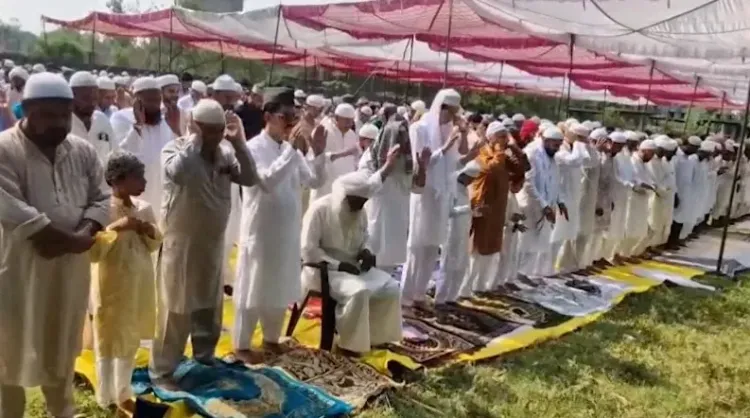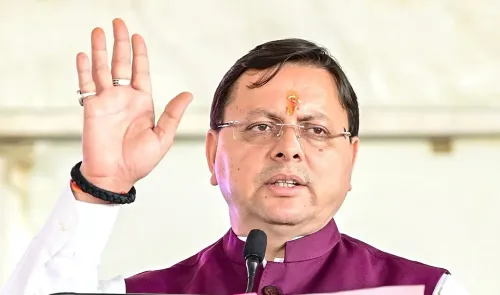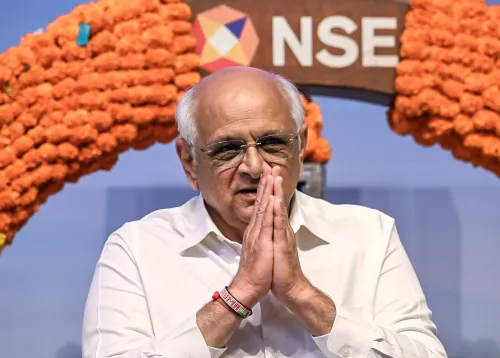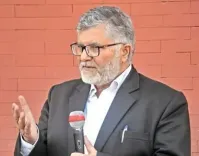How Did Eid Prayers Unfold Across J&K This Year?

Synopsis
Key Takeaways
- Eid al-Adha prayers were held peacefully across J&K.
- Community leaders participated in celebrations, promoting unity.
- Significant arrangements were made for safety and sanitation.
- Animal sacrifices are an integral part of the Eid festivities.
- Sharing food with the community is a common practice during Eid.
Srinagar, June 7 (NationPress) Thousands of dedicated Muslims congregated throughout Jammu and Kashmir on Saturday to participate in Eid al-Adha prayers. Peaceful gatherings were observed in various cities and towns across the Union Territory.
Chief Minister Omar Abdullah and former Chief Minister Dr. Farooq Abdullah joined the faithful in praying at the Hazratbal shrine, located just outside the city of Srinagar.
Numerous Muslims assembled on the lawns of the shrine for the prayers. Former Chief Minister Mehbooba Mufti was also present at the Hazratbal shrine for the Eid prayers.
This shrine is regarded as the holiest site for Muslims in J&K, as it houses the Holy Relic of the Prophet.
Authorities implemented comprehensive arrangements for security, sanitation, and healthcare to ensure the safety of devotees in Srinagar and throughout the Union Territory.
In Jammu city, the principal Eid congregation took place at the Eidgah grounds situated in the Residency Road area. Friends from the Hindu and Sikh communities were among the first to extend their greetings to Muslims after the Eid prayers in Jammu, Poonch, and Rajouri districts.
Significant Eid gatherings were also held in the districts of Budgam, Baramulla, Kupwara, Bandipora, Pulwama, Kulgam, and Shopian.
Children donned new attire and accompanied their fathers to various Eidgahs. Following the prayers, Muslims exchanged embraces to promote the universal message of inclusive brotherhood inherent in Islam.
After the Eid prayers, the tradition of animal sacrifices will commence throughout J&K.
These sacrifices are integral to Eid al-Adha, commemorating the profound sacrifice made by Prophet Abraham, who, under divine instruction, prepared to sacrifice his son, Ismail. As he attempted to fulfill this command, a lamb from heaven appeared to take Ismail's place.
When Prophet Abraham revealed himself, he found Ismail smiling at a distance while the lamb had been provided as a substitute for the sacrifice.
Muslims believe that upon returning home hand in hand with his son, there was a celebration in their family, as Allah had accepted Abraham's sacrifice and spared Ismail's life.
Eid al-Adha commemorates this significant event in Islamic history, and each year the Hajj pilgrimage concludes with pilgrims performing animal sacrifices in Mecca.
The essence of Eid al-Adha reflects the belief that the outcomes of all events and the fate of every individual lies in the hands of God, regardless of the name by which the faithful choose to honor Him.
On this special day, it is customary for Muslims to share mutton with relatives, neighbors, and the less fortunate to ensure that everyone can partake in the festivities of Eid.









